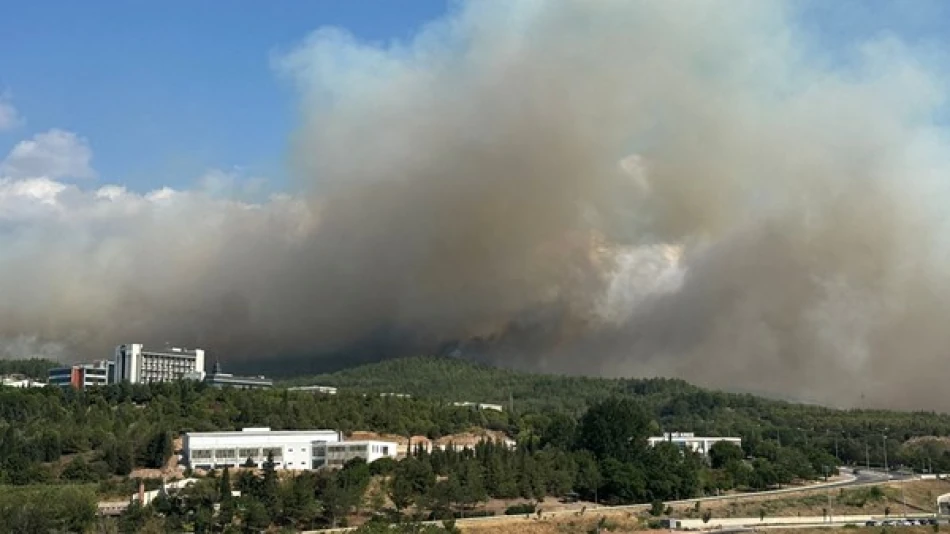
Turkey Closes Dardanelles Strait Amid Raging Forest Fires
Turkey Shuts Down Critical Dardanelles Strait as Wildfires Force Mass Evacuations
Turkish authorities have temporarily closed the strategically vital Dardanelles Strait to all maritime traffic as rapidly spreading wildfires engulf the Çanakkale province, forcing the evacuation of entire villages and threatening one of the world's most important shipping corridors. The closure underscores how climate-driven extreme weather events are increasingly disrupting critical global infrastructure.
Strategic Waterway Under Siege
The Ministry of Transport announced the bidirectional closure of the strait on Friday as fires, fueled by intense winds, spread across Turkey's northwestern region. The Dardanelles connects the Aegean and Marmara seas, serving as a crucial link in the shipping route between Europe and Asia—handling approximately 3% of global oil supplies and significant grain shipments.
Authorities evacuated three villages and a care facility housing 52 elderly residents as flames advanced toward populated areas. With weekend forecasts predicting wind intensification and temperatures reaching 35°C (95°F), the situation threatens to worsen before improving.
Economic and Geopolitical Implications
The strait's closure sends ripples through global commodity markets, particularly affecting energy and grain shipments already strained by regional conflicts. Turkey's control over this narrow waterway—alongside the nearby Bosphorus—gives Ankara significant leverage over international trade flows, making any disruption a matter of global concern.
The timing proves particularly challenging as Europe seeks to diversify energy supplies and secure alternative grain routes. Similar disruptions to critical maritime passages, like the Suez Canal's 2021 blockage, have demonstrated how single chokepoints can cascade into worldwide supply chain disruptions.
Tourism Industry Takes a Hit
Beyond shipping, the fires threaten the region's tourism economy, centered around the ancient ruins of Troy. The Çanakkale province attracts millions of visitors annually, drawn by its historical significance and natural beauty. Extended closures could devastate local businesses already recovering from pandemic-related losses.
Climate Reality Hits Critical Infrastructure
Turkish officials warn that fire risk will remain elevated through October, reflecting a broader Mediterranean trend of extended wildfire seasons. Scientists increasingly link such extreme weather patterns to human-driven climate change, which amplifies both fire frequency and intensity.
This incident joins a growing list of climate-related infrastructure disruptions worldwide—from Hurricane Ida shutting down Gulf Coast oil refineries to European river transport halted by drought. As extreme weather becomes more frequent, countries face mounting pressure to climate-proof their critical infrastructure or risk repeated economic shocks.
The Dardanelles closure serves as a stark reminder that climate change isn't just an environmental issue—it's rapidly becoming a national security and economic stability challenge that demands immediate, comprehensive response strategies.
Most Viewed News

 Layla Al Mansoori
Layla Al Mansoori






